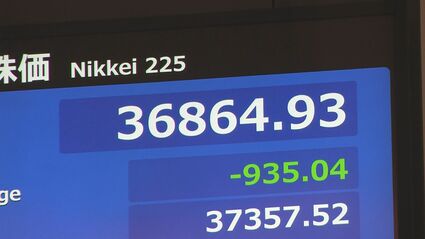In a shocking turn of events, Japan's Nikkei Stock Average dropped by over 900 points within a single trading day. This unexpected slump has caught many investors off-guard and sparked some level of panic in the Japanese stock market. The reason behind this sharp decline remains unclear, potentially suggesting a mix of internal economic pressures and external market factors.
In Japan, the Nikkei Index's performance is often seen as a barometer of the country's economic health. Significant fluctuations usually draw a lot of attention and concern among the general public and most specifically, among investors. This is because many Japanese institutions, corporations, and even personal retirement funds are tied up in the stock market. Hence, sizable drops can affect not just the economy, but the day-to-day life of ordinary people.
The stock market in the US or EU can be just as volatile. Comparable events, such as the sudden drop of the Dow Jones or FTSE index, can have similar implications. A marked difference would be the possible causes for these market swings. For instance, speculation around the Federal Reserve's interest rate decisions often influence the US markets whereas in EU, Brexit decisions had a major impact.

